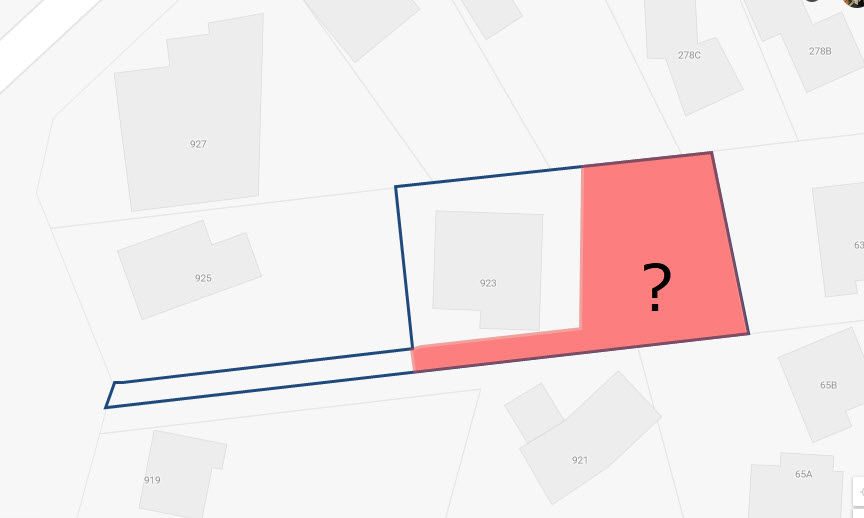#buildityourself - a guide to building your own house ch3: due diligence
- Dec 4, 2018
- 3 min read

With my baby on my lap, watching nursery rhymes on YouTube in a rainy New Zealand, I thought it’s time to update the blog. Just to recap again, you’ve chosen some properties that can possibly be subdivided and now it’s time to take it further.
Before you contact the owners and make them an offer, there are some things you need to check. Namely size and access. Each suburb or area will have its own minimum erf size, but a good rule of thumb is not to go less than 750m2, both for the new portion as well as the remainder. You can try and judge this by using the measuring tool on Google maps combined with your best attempt at geometry. Break down the area into rectangles and triangles and make an estimate of its size. Secondly, there must be access; a driveway of some kind to access the new portion, which should ideally be no less than 3m wide. You can get away with 2.4m but then it becomes a tight squeeze (especially for delivery trucks when you start building)
If you can tick all these boxes, it’s time to approach a surveyor and a town planner. The town planner will submit the actual subdivision application, and the surveyor will measure up the site and issue 2 new Surveyor General (SG) diagrams. It’s also good to get a lawyer on standby, as they will prepare a new title deed for the new section, and also have to amend the title deed of the remaining portion. An architect/draftsmen will also have to submit new site plans for both portions. Get a quote from all of the above as part of your proposal.
Ask the town planner what the probability of success will be for the subdivision, and if he is relatively certain that council will allow it, it’s worth pursuing further.
Other costs that you have to take into account will be the dividing wall, paving of the new driveway, a sewer connection, an electrical connection, a water connection, a geotechnical report (which will include some digging or drilling, depending on the area)
This is where things can go wrong quickly, and estimates should be made before an offer to an owner is considered. Contact plumbers, electricians and an engineer to get an idea of costs. Do some due diligence here and make sure you cover your bases. These costs can quickly escalate to R200k and then the deal might not be so sweet anymore.
Once you have made your estimates, it’s time to set up your offer. The best approach for me is to find out who the owner is (you can do a search on mydeedsearch.co.za and pay R100 or something and after a day or 2 they send you all the info on file – owner name and contact number is all you want) How you approach the owner is up to you. What worked for me was an sms, and then a phone call. I tried dropping letters in mail boxes (didn’t get a single response), and knocking on doors, (got the opposite reaction and actually got chased away… ‘what gives you the audacity to even imagine that I want to sell my property’…. Etc etc)
All you really want is just some kind of positive feedback. At least then you know there is a chance. Now you just have to make sure your offer is worthwhile. Look at what neighbouring properties are selling for to get an idea of the market, and then make an educated estimate of what you think such a subdivided plot will be worth. Obviously it needs to suit your pocket as well, but remember, you’re not building your own house because you want to save money. You want to build your own because you want the place to be the way you want it – not some compromise that needs alterations and additions at a later stage. You’re building your dream home. Dreams don’t come cheap, but they’re definitely worth it!
Talk to your lawyer and have him set up the proposal, if the deal goes through it is imperative to have a contract in place, as you’ll have to fork out the money for the subdivision and you don’t want to be spending money on something that you haven’t secured.
The entire process of subdivision can take anything from 12 months to 24 months, depending on the efficiency of your consultants as well as the approvals by council. Use this time to save more money, and to plan your project properly!















Comments